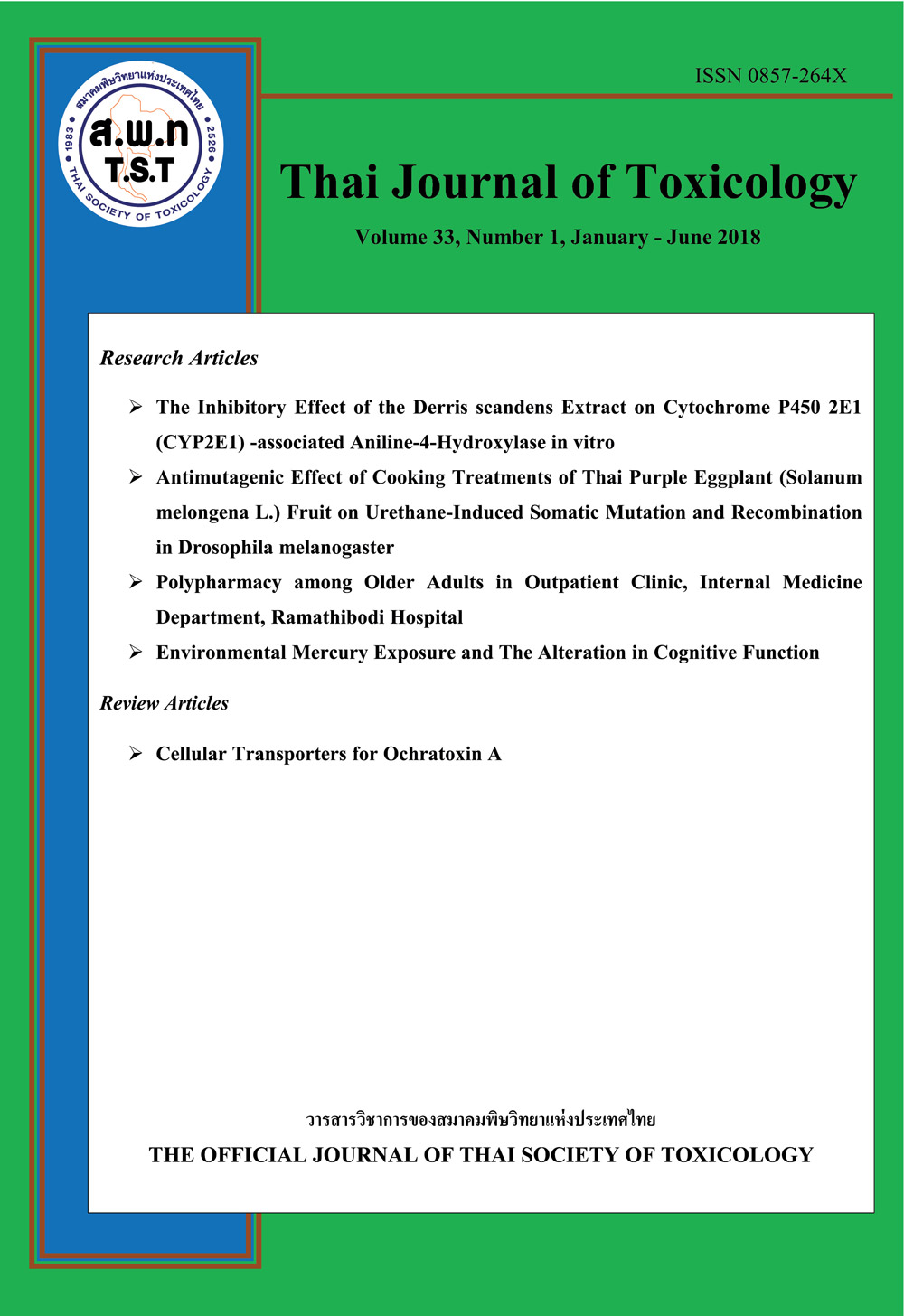Environmental Mercury Exposure and The Alteration in Cognitive Function
Main Article Content
Abstract
Abstract
One of the best known neurotoxins is mercury (Hg). It is a ubiquitous environmental toxicant that cause long-lasting neurological and developmental deficits in animals and humans, especially in the form of methylmercury (MeHg). MeHg is accumulated in fish, which represent a major source of human exposure. The researches related to effects of Hg exposure on cognitive dysfunction in Thai people are limited. Therefore, the purpose of this study was to investigate the associations between blood mercury, influencing factors, and cognitive function. The study population included 436 individuals, aged between 45-65 years old. Their blood mercury levels were measured by inductively coupled plasma mass spectrometry (ICP-MS). Cognitive impairment was evaluated by Montreal Cognitive Assessment (MoCA). The geometric means of blood mercury were 5.12 μg/L. Blood mercury was higher in subjects who more frequently ate fish with medium amounts of fat. Decline in cognitive function, especially in the memory domain, was observed in individuals with the third tertile of blood mercury level. In conclusion, the potential relationship between mercury exposure and cognitive impairment was partly indicated in this findings. Further studies with particular emphasis on molecular mechanisms of Hg-induced neurotoxicity, appropriate exposure assessment tools together with the potential protective role of natural or dietary supplement should be emphasized.


